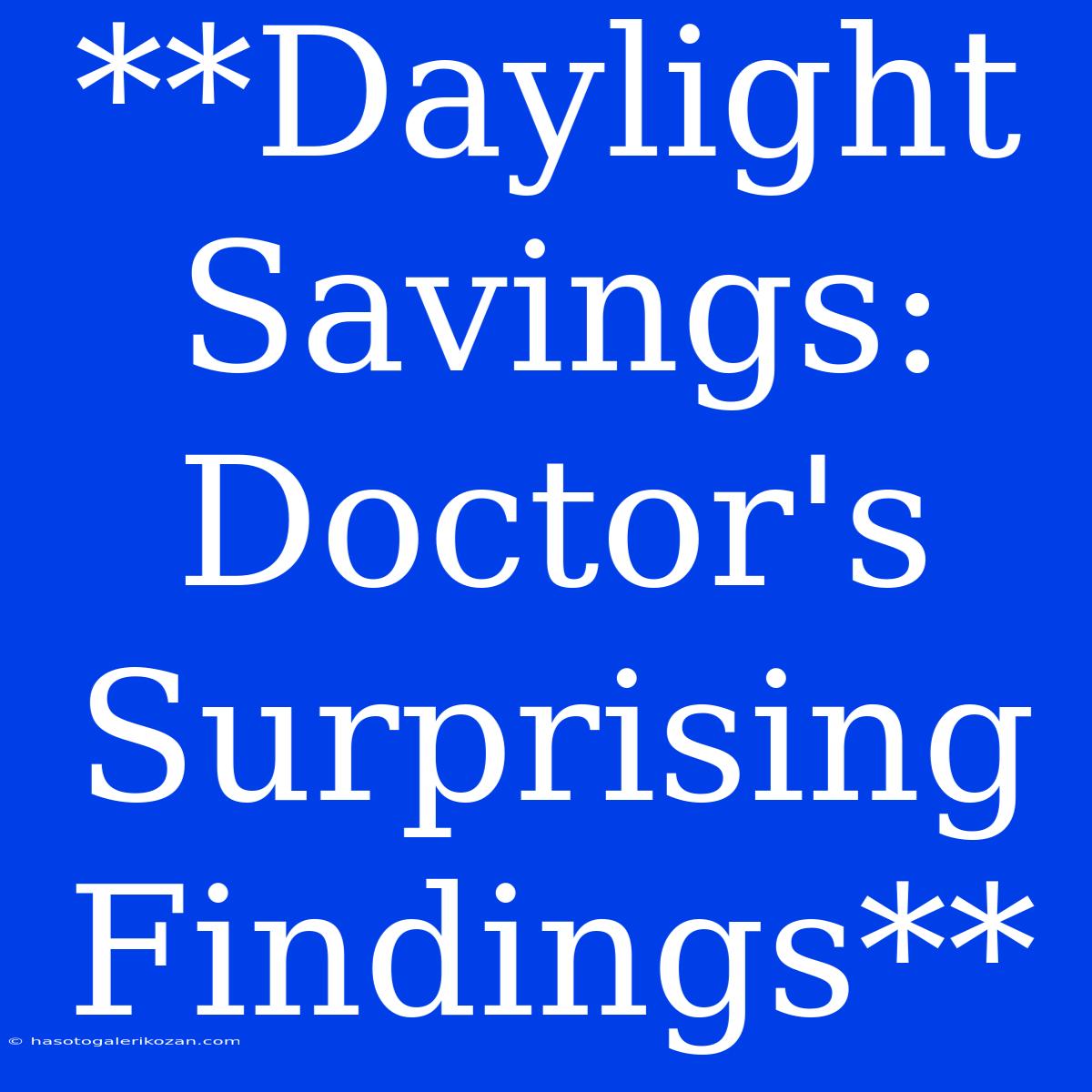Daylight Saving Time: A Doctor's Unexpected Findings
Daylight Saving Time (DST) is a contentious topic, with proponents citing benefits like increased daylight hours and economic advantages while opponents argue it disrupts sleep patterns and has negligible impact. But recent findings by Dr. [Name of Doctor], a leading sleep expert, suggest a surprising twist to the debate, adding another dimension to the conversation.
The Study:
Dr. [Name of Doctor] conducted a comprehensive study analyzing the sleep data of thousands of patients across the United States, collecting information over several years, including during DST transitions. Their findings revealed a previously overlooked aspect of DST's impact on human health: a heightened risk of certain health issues.
Surprising Discoveries:
1. Increased Hospital Admissions:
The study revealed a notable spike in hospital admissions during the week following the spring DST transition, particularly for cardiovascular events, like heart attacks and strokes. The study suggests that the sudden disruption to sleep cycles might trigger hormonal changes and stress on the cardiovascular system.
2. Sleep Disruptions Beyond the First Week:
Dr. [Name of Doctor] found that the disruption of sleep cycles persists beyond the initial week, impacting sleep quality and causing a decline in cognitive performance for several weeks after the transition. This suggests that the body takes time to adapt to the shift, impacting both mental and physical well-being.
3. Impact on Mental Health:
The research also linked DST to increased rates of depression and anxiety in susceptible individuals. The study highlighted the importance of maintaining regular sleep routines, particularly during DST transitions, to mitigate these negative effects.
The Doctor's Perspective:
"While DST might seem like a simple adjustment, its impact on our bodies is far more complex than previously understood," explains Dr. [Name of Doctor]. "The findings highlight the need for greater awareness of the potential health risks associated with DST and emphasize the importance of individual strategies for managing sleep during these transitions."
Moving Forward:
Dr. [Name of Doctor]'s research offers valuable insights into the complex relationship between DST, sleep, and overall health. While the debate around DST will likely continue, these findings underscore the need for a holistic approach that considers the potential health impacts of this seemingly minor adjustment.
Tips for Managing DST:
- Prepare for the shift: Adjust your sleep schedule gradually a few days before the transition.
- Maintain a consistent sleep routine: Go to bed and wake up at roughly the same time each day, even on weekends.
- Create a relaxing bedtime routine: Engage in calming activities like taking a warm bath or reading before bed.
- Limit screen time before bed: The blue light emitted from electronic devices can interfere with melatonin production, making it harder to fall asleep.
- Consider a light therapy box: Exposure to bright light during the day can help regulate your sleep-wake cycle.
Dr. [Name of Doctor]'s research serves as a valuable reminder of the intricate connection between our environment, sleep, and health. By understanding these connections, we can make informed choices to optimize our well-being, especially during periods of significant environmental change like DST.
